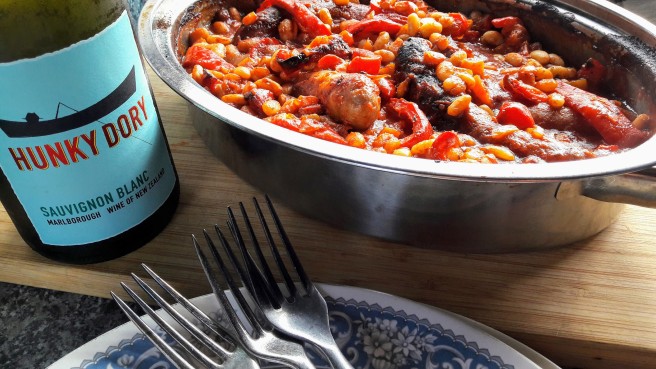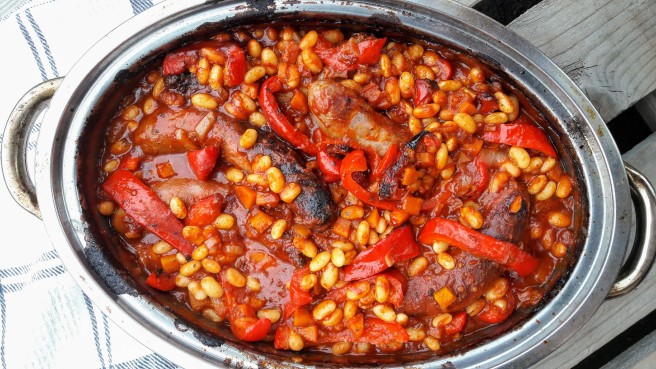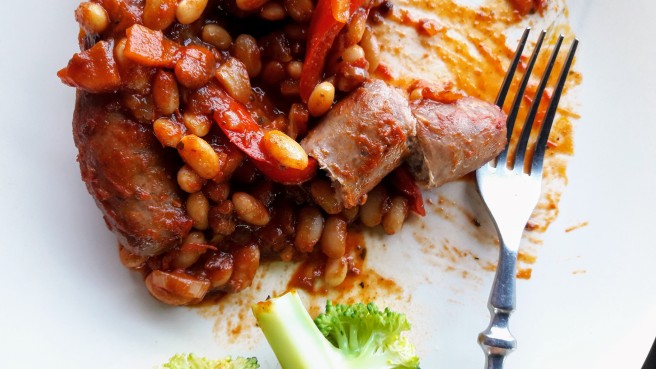“Beans, beans are good for your heart! The more you eat, the more you….. ” Well I am sure you all know the rest of that one, but it doesn’t have to be the case.

Prepared with time and care there is no reason why beans need cause any more digestive (or social) discomfort than any other food. The trouble is, in our fast paced instant world, we often forget the tradition, the art and the benefit of taking things slowly.
Lentils, legumes and grains are steeped in controversy nowadays, some saying they are not fit to be eaten while others praise them. The truth remains though, ancient cultures have lived on diets heavily dependent on these things for a generations. One size does not fit all when it comes to food but in most cases, with a bit of understanding on how to prepare them they can be not only good to eat but also beneficial.
The biggest issue with beans (and most grains, seeds, lentils and nuts) is that they have been “designed to survive”. This means they have been given natural defense mechanisms that help them to avoid digestion when consumed by animals or humans. So when they eventually see the light of day again, they can carry on their merry way and sprout and grow as if nothing has happened.
It all gets quite complex if you really start looking into the science of it all but the long and short of it is this:
- Beans contain phytates/phytic acid and enzyme inhibitors which prevent them from being digested efficiently.
- The enzyme phytase is needed to deactivate phytate/phytic acid
- Beans contain their own naturally occurring phytase which needs to be activated
- Soaking and sprouting activates phytase which helps to deactivate phytates/phytic acid making them more digestible and nutritious.
The human digestive system produces enzymes to break down foods, but we do not produce a lot of phytase, and some people produce more than others. This is why soaking and activating the naturally occurring phytase is so important. Interestingly, some lactobacilli bacteria also produce phytase, so having a healthy gut/microbiome could mean you may digest beans better than the next person.
Phytates/phytic acid, when not deactivated, binds up minerals and nutrients so that we can not digest them. Instead they will just be passed out of the body. This can lead to mineral deficiencies and other malnourishment conditions.
Phytic acid also binds up or deactivates our bodies own enzymes for metabolizing protein and carbohydrates. This means that food that would normally be broken down in the stomach and small intestines can passed into the large intestines relatively whole. It is then fermented by our gut bacteria and produces gas, so we end up with bloating and digestive discomfort.
Beans are a great, affordable food but they need to be prepared right. There are different methods out there, so play around and see what works, but basically a safe guideline is this:
- Soak beans in warm slightly acidic (a dash of apple cider vinegar, lemon juice, whey etc) water for at least 12 hours.
- Drain, rinse and cook SLOWLY in unsalted water until soft
- Use or freeze as desired
So get some beans soaking and try this delicious Autumn Harvest inspired recipe:-

Smoked Paprika Baked Beans with Capsicum and Sausages
1 red onion – diced
3 cloves of garlic – crushed
1 carrot – diced
splash of olive oil
3 red capsicums – roughly sliced
6 good quality butchers sausages
2 cups of cooked beans – I used haricot beans
2 tsp smoked paprika
2 bay leaves
optional – 1/2 tsp ground kelp
2 TBSP balsamic vinegar
salt and pepper
1 TBSP brown sugar
2-3 cups Tomato Passata
optional – 1/2 cup diced bacon (YUM!)
Saute the onion, garlic and carrots in the oil until lightly browned than transfer to a deep sided oven dish. Brown off the sausages and the capsicums in the same pan and add to the dish. Sprinkle over the beans, paprika,bay leaves, vinegar, salt/pepper, sugar and passata. Stir everything then cover and bake for 1 1/2-2 hours in a moderate oven.

TIPS:
- Serve these beans up for a cosy dinner with a big side of greens. Vitamin C has been shown to counteract the effects of phytic acid which is why a side of greens and the capsicums in the dish are a great combination.
- Vinegar has been shown to increase the uptake of minerals which is why the balsamic in this dish is important. Not just for flavour but also to help counter the effect of mineral binding phytic acid.
- Make a big batch and save left overs in portion size lots in the freezer for a quick meal of beans on toast
Comment and share how your bean cooking goes. Do you have any tricks that really make beans sing?




Yum!!! Just the sort of cosy meal to enjoy in all this wet windy weather.
And what great info you are putting up, thank you!! I knew phytates were bad and we have changed our diet the last few years to be properly preparing our grains and legumes now, soaking and sprouting etc and have noticed a huge change with my digestion, but didn’t know about vitamin C helping counteract phytic acid !! So helpful to know 🙂 what is the reason for cooking the beans in unsalted water ?
LikeLiked by 1 person
Thanks Talia. There is seriously so much debate out there about what is right and wrong when it comes to cooking beans but from what I understand about salt, and what I have noticed with my own experience. Salt in the water during the initial cooking seems to stop the beans from softening up, so you can end up having to boil them for ages. If you boil and soften them first than add salt as seasoning later they seem to be much nicer.
LikeLike
Wow, I have always wondered what I was doing wrong as they never soften up very nicely when I cook them (always in salted water!!) so I really appreciate knowing that!! I’m looking forward to my next bean cooking experience 😉
LikeLiked by 1 person